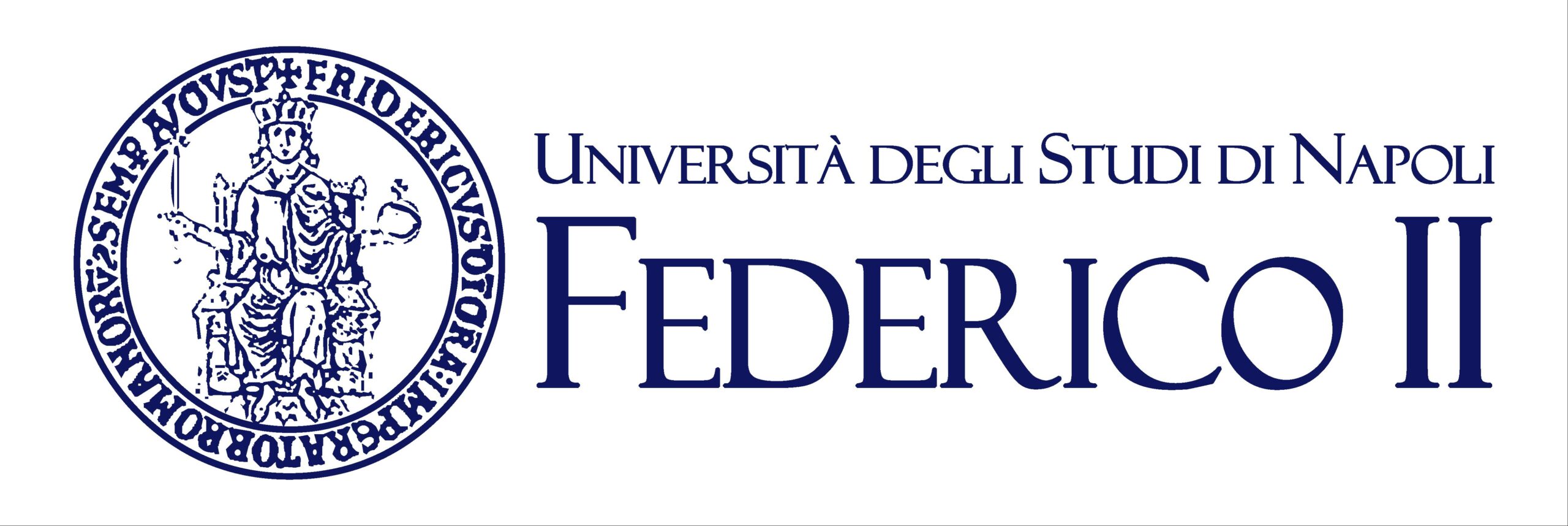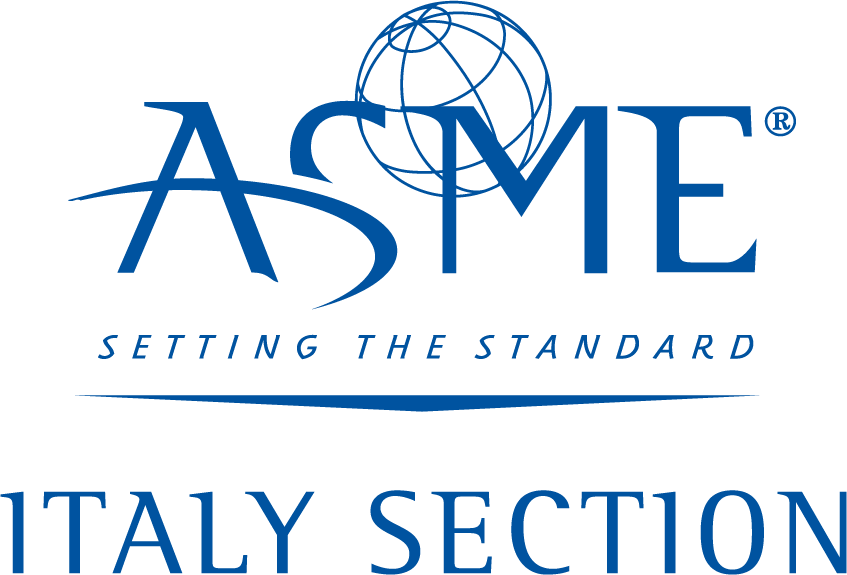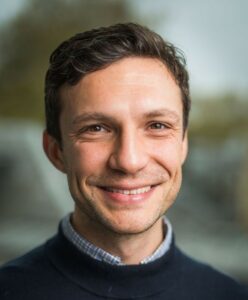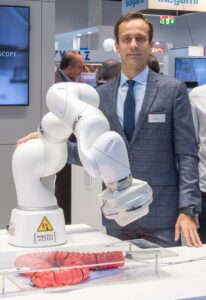CRAS 2022
The 11th edition of CRAS will take place at Centro Congressi Federico II in Napoli, Italy.
Due to the evolution of the COVID-19 pandemic in Italy, to hold the CRAS meeting in presence the dates have been tentatively postponed to April 25-27, 2022.
The up-to-date COVID-19 travel updates to Italy can be found here:
Surgical robotics is a key factor for the introduction of new surgical procedures not feasible otherwise, as well as for improving current procedures by providing new assistive tools that allow achieving more precision and higher surgical performances. Robotics breaks into the Operating Room in an effective way in the XXI century and its progress, although still slow, has already reached a figure of 10.000 operation robots in hospitals worldwide.
CRAS 2022 aims to support and propose concrete measures to accelerate research and innovation in Robotic Surgery. In this 11th edition communications are expected on advances in the following fields: virtual and augmented reality techniques applied to training, planning, and assisted guidance; new techniques to introduce effective haptic feedback; new devices, technologies, and procedures for less invasive surgery and to facilitate the execution of complex surgical tasks; and artificial intelligence for planning, guidance, and autonomous operations.
Extended abstracts (2 pages) discussing new technologies for computer/robot-assisted surgery are solicited.
CRAS 2022 Invited Speakers
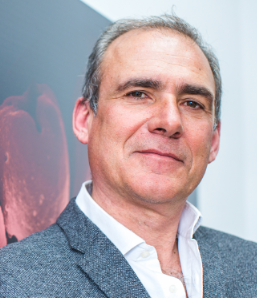
Paolo Netti
Professor of Industrial Bioengineering, Department of Chemical, Materials and Industrial Production Engineering,
University of Naples Federico II and Istituto Italiano di tecnologia (IIT)
https://www.iit.it/people-details/-/people/paolo-netti
Biosketch
Paolo A. Netti obtained a Ph.D. in Chemical Engineering in 1994 at the University of Naples "Federico II". He moved as postdoc at the IRC in the Biomedical Materials of the University of Queen Mary in London and then at the Harvard University in Boston. Since 2000 he has established his independent laboratory at the University of Naples "Federico II" where he is now a full professor of bioengineering. He is known in the international scientific community for having contributed to enriching and expanding the modern concept of biomaterial and extending the boundaries of the application to ever wider sectors of biomedical areas. He has been co-founder and director of the Interdepartmental Center for Research on Biomaterials (CRIB) of Federico II University (2004 – 2010); Chair of the Master's Degree in Materials Engineering from 2005 to 2013; Founder and chair the Master's Degree in Industrial Bioengineering since 2015; Founder and director of the Center for Advanced Biomaterials for Health Care (IIT @ CRIB) of the Italian Institute of Technology since 2009; Member of the scientific panels of the European commission for the definition of the roadmap for the development of new platforms on biomaterials (VII framework program); since 2009 he has been a member of the Advanced Grants evaluation panel for the European Research Council (ERC) and from 2015 to 2018 he has chaired of PE5 panel. He has been scientific component of the panel of experts for the preparation of the Italian Research Program (PNR) 2020-2026. He has published over 480 scientific papers accumulating over 20,000 citations, over 30 book chapters, and has filed over 30 patents.
Title of the Talk
Novel scenarios in synthetic-biological hybrid materials
Abstract of the Talk
In the 1931 article 'Fifthy Years Since' published in The Strand Magazine, Winston Churchill envisaging future possibility provided by advancements in science wrote: ‘We shall escape the absurdity of growing a whole chicken in order to eat the breast or wing, by growing these parts separately under a suitable medium’. His vision, unimaginable for those times, is now a forthcoming reality. The advancement of scientific knowledge and above all of technologies in the field of animal and human tissue regeneration in vitro could revolutionize our world. In fact, a few years ago, Time magazine listed the idea of generating lab-grown meat among the 10 most innovative ideas of the moment with high potential to impact on everyday life and lab-grown chicken strips and lab-grown duck a l’orange are expected to be on the market soon. Aside from the effect on our culinary traditions, and the somewhat disturbing scenarios of fast food chains named MacInvitro or Frankburgers, in this talk I would like to discuss the enormous impact these technologies can have on our health and well-being. The possibility of replicating the processes of tissue-genesis in vitro and in vivo has an impact potential that goes far beyond the obvious clinical domain. These technologies make it possible to break down the separation barrier, once considered taboo, between the biological and the synthetic realm, opening up to new and unimaginable evolutionary scenarios. The interdigitation between synthetic and native biological matter is a conceptual revolution that changes the paradigms of well-being, industrial production, artificial intelligence and robotics. In particular, the recapitulation in vitro of the somatosensory and proprioception human response could provide new conceptual fuel for exo- and endo-prosthesis self-control and for adaptative soft robotic systems.
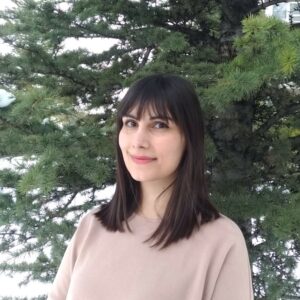
Duygu Sarikaya
Assistant Professor of Computer Science, Department of Computer Engineering
Gazi University
https://about.me/sarikayaduygu
Biosketch
Dr. Duygu Sarıkaya is currently an Assistant Professor at the Department of Computer Engineering at Gazi University. She received her MS and PhD from University at Buffalo, State University of New York, and her BS from TOBB University of Economics and Technology. She is a FULBRIGHT alumna. She was formerly a Post-doctoral Researcher at MediCIS, INSERM, Universite de Rennes 1 working on Connected Optimized Network & Data in Operating Rooms Project with multiple academic and industrial partners, funded by BPI France, a Project Coordinator and Researcher at ATLAS Program, Roswell Park Comprehensive Cancer Center, working in close collaboration with clinicians on Deep Blue Project, funded by the Roswell Alliance Foundation, and a Research Assistant at Vision and Perceptual Machines Lab on a National Institutes of Health (NIH) project in collaboration with Roswell Park Comprehensive Cancer Center. She has served as a board member of Women in MICCAI (WiM). Her research interests span defining the technologies of artificial intelligence-powered, context-aware healthcare applications. More specifically, she works on surgical vision and perception, surgical data science, and medical image computing.
Title of the Talk
Complementing Surgeons with Situation Awareness using Computer Vision
Abstract of the Talk
Surgical robotic tools and digitally enhanced operating theaters have been giving surgeons a helping hand for years. While they provide great control, precision, and flexibility to the surgeons, they don’t yet address the cognitive assistance needs in the operating theater. We are on the verge of a new wave of innovations of artificial intelligence-powered surgical technologies, and surgery is increasingly becoming data-driven. We believe that situation awareness is a key step towards automation in surgery, and we envision situation-aware surgical technologies that are able to use data to perceive their environment, comprehend ongoing activities and processes, project outcomes of a number of possible actions, and complement the surgical team by providing real-time guidance during complex tasks and unexpected events. The recent advances in computer vision and machine learning, combined with surgical knowledge representation can answer these needs. In this talk, we will explore how we can reduce the problem of situation awareness in the operating theater to a set of computer vision problems.
Danail Stoyanov
Professor of Robot Vision and Director of the Wellcome/EPSRC Centre for Interventional and Surgical Sciences, Department of Computer Science,
University College London
https://www.ucl.ac.uk/surgical
Biosketch
Dan Stoyanov is a Professor of Robot Vision in the Department of Computer Science at University College London, Director of the Wellcome/EPSRC Centre for Interventional and Surgical Sciences (WEISS), Royal Academy of Engineering Chair in Emerging Technologies and a Fellow of the Institution of Engineering and Technology. Dan is also Head Scientist at Digital Surgery, Medtronic, and Co-Founder of Odin Medical, both companies specialising in developing AI products for interventional healthcare. Dan first studied Computer Systems and Electronics at King's College London before completing a PhD in Computer Science at Imperial College London where he specialised in medical image computing. He works on vision problems in minimally invasive surgery especially related to non-rigid structure from motion, scene flow and photometric and geometric camera calibration. His work is applied towards developing image guidance, computational biophotonic imaging modalities and quantitative measurements during robotic assisted minimally invasive procedures.
Title of the Talk
Computer Vision in Minimally Invasive Surgery - Entering the Decade of Clinical Solutions and Products
Abstract of the Talk
Over the past 30 years a wide range of computer vision algorithms have been applied to surgical video, especially in minimally invasive surgery. Different capabilities have been demonstrated ranging from surgical site 3D reconstruction and mapping, to instrument and structure detection, motion tracking, and disease classification, to name a few. Yet until recently a very limited number of clinical solutions used this technology. This is likely to change dramatically over the next decade and in this talk I will showcase some of the recent vision capabilities in surgical video and the products and clinical solutions that are emerging and entering routine clinical use.
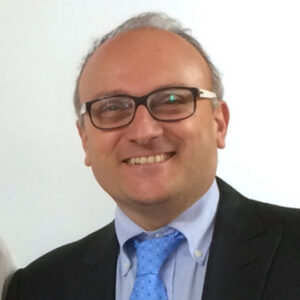
Roberto Troisi
Professor of General Surgery, Department of Clinical Medicine and Surgery,
University of Naples Federico II
https://www.chirurgiafegatopancreas.unina.it/it/staff/roberto-troisi/
Biosketch
Roberto Troisi, MSc MD PhD FEBS (Transpl; HPB), is Full Professor of Surgery at the Federico II University of Naples, Italy and is actually Chairman of the Division of HPB, Minimally Invasive and Robotic Surgery at the Federico II University Hospital since January 2020 and Acting Chairman of General and Renal Transplant Surgery at the same University. He received his surgical training in Naples, Brussels and in Ghent. He obtained the PhD Degree at the Ghent University in 2003 (appointed Associate Professor in 2004 and Full Professor of Surgery in 2017). He led the Division of HPB and Liver Transplant Surgery from 2009 to 2018 establishing the Belgian Registry on Laparoscopic Liver Surgery. From 2018 to 2019 acted as Chairman of the Department of HPB, Small Bowel and Liver Tranplantation at the King Faisal Hospital (Riyadh, Saudi Arabia). Since 2010 he was director of the ALLIVER Masterclasses in Ghent and Riyadh. Dr Troisi performed live laparoscopic surgery in 11 different countries establishing the minimally invasive donor hepatectomy program in Belgium and in Saudi Arabia. He is past president of the Belgian Transplant Society and past president of the Belgian HPB Chapter. He is in the executive committee of the Italian HPB chapter and the International Laparoscopic Liver Society (ILLS). His main interest is focused on transplantation of partial liver grafts, minimally invasive liver surgery and living donor hepatectomy and liver graft hemodynamic. He is actually leading the project of virtual and mixed reality in minimally invasive liver surgery at the “Federico II” University Hospital. Member of many scientific societies including IHPBA, ESOT, IASGO, ESA, LDLT Society and ILTS, he is reviewer for the major surgical journals with more than 300 A1 publications (H-Index of 46) and 20 chapters in books.
Title of the Talk
The Evolution of Minimally Invasive Liver Surgery: from the Key Hole through Robotic Assistance to Augmented Reality
Abstract of the Talk
The minimally invasive techniques of liver surgery have dramatically increased worldwide during the last fifteen years. The pathologies that have benefited the most are mainly cancerous ones, this is because the short duration of hospital stay and complications, in general, have reduced surgical stress, pain allowed an earlier re-validation, and allowed, above all, to complete the treatments with early administration of chemotherapy. Subsequently, the diffusion of robotic platforms offered an alternative to the classic laparoscopic approach by strengthening the advantages of minimally invasive, allowing to increase the difficulty level in less skilled laparoscopic surgeons, shortening their learning curve and offering at the same time a complementary digital technology by grouping medical images on a single screen. Allied (and now indispensable) technologies are represented by near-infrared fluoroscopy based on indocyanine green and 3D rendering (3DR). The ICG is a kind of augmented reality finding different areas of use range, from the evaluation of liver function, especially in cirrhotic patients to intraoperative visualization of hepatic tumors, the definition of biliary anatomy, the visualization of hepatic anatomy and liver segments, the evaluation of residual liver perfusion eventually the diagnosis of biliary fistulas at the end of the intervention. 3DR via medical images processing allows the planning of the surgical gesture helping with intraoperative identification of lesions and their relationship with biliary and vascular structures. Its use can also allow planning of the best surgical strategy taking into account the remnant liver volume and perfusion, both of paramount importance to avoid postoperative liver insufficiency. The robotic platform can incorporate all the images into the same screen guiding the surgeon during an oncologic operation. The incorporation (projection) of the 3DR into the screen could facilitate the anatomical orientation which is additionally improved when the 3DR is translated into holograms (mixed reality). What liver surgery now expects is to increase the precision through minimal access by merging 3DR images that change in real-time with the surgical gesture.
Pietro Valdastri
Professor of Robotics and Autonomous Systems, Director of the Science and Technologies Of Robotics in Medicine (STORM) Lab, School of Electronic and Electrical Engineering,
University of Leeds
Biosketch
Prof. Valdastri’s academic career started with a Laurea degree cum Laude in Electronic Engineering from the University of Pisa in 2001 and a PhD degree cum Laude in Biomedical Engineering from Scuola Superiore Sant’Anna in 2006, with Prof. Paolo Dario as primary advisor. After the PhD, he served as Assistant Professor of Biomedical Engineering at the BioRobotics Institute of Scuola Superiore Sant’Anna for three years, focusing on implantable medical devices and surgical robotics. In 2011, Prof. Valdastri moved to Vanderbilt University, where he became Assistant Professor of Mechanical Engineering. There, Prof. Valdastri started the Science and Technologies Of Robotics in Medicine (STORM) Lab focusing on medical capsule robots for gastrointestinal endoscopy and abdominal surgery. In 2016, he moved to Leeds as Full Professor and Chair in Robotics and Autonomous Systems with a primary appointment in the School of Electronic and Electrical Engineering and a secondary appointment in the School of Mechanical Engineering. In Leeds, Prof. Valdastri is directing the STORM Lab, the Institute of Robotics, Autonomous System and Sensing (IRASS), and the Robotics at Leeds network. Prof. Valdastri is a Royal Society Wolfson Research Fellow, a Fellow Member of the Institute of Electrical and Electronics Engineers (IEEE), the Editor for Medical and Rehabilitation Robotics of the IEEE Robotics and Automation Letters, a member of the Technology Committee of the European Association for Endoscopic Surgery (EAES), and a member of the steering committee of the International Society for Medical Innovation and Technology (iSMIT). In the last five years, Prof. Valdastri received more than €12M in research funding as Principal Investigator, including the National Science Foundation CAREER Award with the proposal “Lifesaving Capsule Robots” in 2015, the European Research Council Consolidator Grant Award with the proposal “NoLiMiTs – Novel Lifesaving Magnetic Tentacles” in 2019, and the KUKA Innovation Award for his robotic colonoscopy platform. STORM Lab’s research has been featured by several tech news outlets, including BBC, The Times, The Financial Times, New Scientist, The Spectator, WIRED, IEEE Spectrum, Medgadget, Daily Mail, The Engineer, Medical Design Technology Magazine, Medical Xpress, Newswise, NSF Science Now.
Title of the Talk
Soft Robotics for Early Detection and Treatment of Cancer
Abstract of the Talk
The talk will focus on Robotic Flexible Endoscopy and the level of computer assistance required to minimize the mental burden on the operator. Flexible endoscopy enables clinicians to reach deep inside the human body to diagnose and treat mortal diseases, such as cancer. Unfortunately, conventional flexible endoscopes are difficult to operate, often traumatic for the patient, extremely expansive, and prone to the risk of viral and bacterial cross-contamination. Robotic flexible endoscopes – a sub-class of medical continuum robots – have the potential to revolutionize the field by offering an easy-to-use, safe, affordable and low-risk alternative for procedures such as gastrointestinal endoscopy. During the talk, we will discuss robotic flexible endoscopy platforms under development at the STORM Lab to transform medical robotics. We will also explore different levels of computer assistance designed to improve the user experience and facilitate adoption by healthcare operators.
Topic of Submission
- Machine learning and cognitive surgical robotics
- Registration, segmentation, modelling, and data mining
- Synergies and clustering
- Motion compensation and active guidance
- Human-robot collaboration and shared control
- Workflow analysis and episode segmentation
- Surgical skill assessment
- Usability and user-acceptance
- Robotics in medical diagnosis
- Robotic systems in orthopedics
- Rehabilitation and assistive technologies
Important Dates
- Deadline for extended abstracts (NEW DATE): November 30, 2021, 23:59 CEST
- Notification of acceptance: December 22, 2021
- Deadline for final Paper Submission (NEW DATE): April 1, 2022 CEST
- Deadline for early bird registration (NEW DATE): April 1, 2022 CEST
- Regular registrations are always open until the days of the conference
-
Call for demos is open until April 11, 2022, 23:59 (new date). To propose a demonstration or to exhibit a product/prototype please email fanny.ficuciello@unina.it
- Conference (NEW DATE): April 25-27, 2022
Submission Guidelines
- 2 pages Extended Abstracts.
- A template can be downloaded here (docx, pdf, or Latex).
- Please follow the template for your final paper.
- Call for papers EasyChair via this link here.
- CRAS 2022 EasyChair Submission link.
- A template for poster presentation can be downloaded here (pptx or Latex).
- A template for pitch presentation can be downloaded here (pptx).
CRAS 2022 Proceedings
CRAS 2022 proceedings are available here.
CRAS 2022 Best Demo
M. Finocchiaro, X. T. Ha, J. F. Lazo, C. Lai, S. Ramesh, A. Hernansanz, G. Borghesan, D. Dall’Alba, S. Tognarelli, B. Rosa, A. Casals, N. Padoy, P. Fiorini, J. Dankelman, E. Vander Poorten, A. Menciassi, E. De Momi - Multi-level-assistance Robotic Platform for Navigation in the Urinary System.
CRAS 2022 Best Papers
- Michael Brockdorff, Giovanni Pittiglio, Tomas da Veiga, James H Chandler and Pietro Valdastri - Dual-Arm Platform for Control of Magnetically Actuated Soft Robots
- Vanni Consumi, Lukas Lindenroth, DanailStoyanov and Agostino Stilli - Experimental Evaluation of the SoftSCREEN Capsule System in a Colon Phantom
- Xue Hu and Ferdinando Rodriguez Y Baena - Augmented reality-assisted markerless hip centre measurement for total knee arthroplasty
CRAS 2022 Special Issue
Authors of the best original papers will be invited to submit the extended version of the work to the Special Issue on IEEE Transactions on Medical Robotics and Bionics linked to the conference.
Further details will be published soon.
